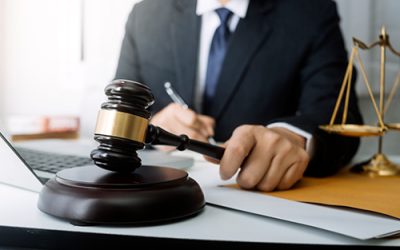When it comes to litigation, presenting audio evidence along with transcripts is an extremely useful tool. Lawyers look to a legal transcription service providers to prepare well-formatted documents from video and/or audio recordings of legal conferences and meetings, hearings, depositions, interrogations, witness interviews and so on. These transcripts are used in court cases to present evidence in an effective manner and can positively impact the outcome of the case.
Once the authenticity of a transcript is established and evidence has been provided regarding its accuracy, the transcript is admissible opinion evidence about what is said on the recording. Using transcripts for court cases provide many benefits:
- Clarity: Legal transcripts are a text version of the speech and non-speech audio information and provide a way of understanding the content. When presenting evidence, transcripts provide more clarity to the audio/video recordings. A skilled lawyer can use a verbatim transcript to improve all aspects of the case. With accurate documentation of legal events and testimonies, lawyers handling complex cases can get an overall record of the evidence. This will help them be better prepared to handle their case, especially in situations when there are several witnesses or contradictory police reports. In fact, evidentiary recordings without transcripts can pose many concerns. FindLaw provides two examples of situations where transcripts would provide more clarity: when foreign languages are spoken in the recordings and when speech recordings contain slang and/or regionally accented speech. Having a transcript will make it easy for jurors who are unfamiliar with the language or accents to follow what was said. If background noise and other disturbances are present in the audio recordings, it can be difficult for the jury to discern who said what. Transcripts help when it comes to deciphering multiple voices in the audio recording.
- Allows highlighting of key information: Lawyers can highlight key information and important details and quotes from a transcript. This is extremely useful when the lawyers as it can help them develop questions or keep a track of the most important aspects of a case. It is easier to find the information as and when needed in transcripts. Interactive transcripts with timestamps allow users to search for specific information within a video. They simply have to type a search term into the search bar to see every location where the keyword is spoken within the transcript. With interactive timestamps, lawyers can go to the more pertinent parts of the record instead of watching the whole video.
- Makes material easy to organize and searchable: Transcripts are easier to organize than video/audio content. Lawyers need to monitor and study every minor detail of the case to ensure that the court proceedings go smoothly. Sorting through dozens of hours of audio and video material can be a major challenge for lawyers. With a proper folder system, transcripts can be neatly organized. With advanced technology, well-organized transcripts can be searched using words, acronyms, or phrases – all of which help legal professionals present the case more effectively.
- Easy to share: With accurate, timely transcripts in a user-friendly and printable format, lawyers can easily share information and collaborate effectively with their client and their legal team.
- End-to-end support: From developing trial plans to the appeals process, clear and accurate transcripts provide lawyers with comprehensive support by providing a better understanding of the facts of the case, without any room for misinterpretation. Lawyers can also use the transcript for questioning the other party and also pull witness statements from it to make their point if witnesses are not present for some reason. With accurate transcripts of various events, lawyers can study the material and prepare how to handle the case. They can use the transcript to prepare questions, reiterate what was said in the deposition, and also ask for clarifications on specific statements. With an accurate written record of testimonies that can be used as evidence in a trial, lawyers can revisit the material to formulate an appeal if the need arises.
When drafting adversarial and objective documents, lawyers must identify the purpose clearly for effective results. Whether they are writing or summarizing a deposition transcript or updating a client on the progress of the case, they need to be clear about the purpose before they start drafting. Legal transcription outsourcing to an experienced service provider can ensure clear documentation of all types of video/audio content that accurately conveys the information. By providing precise insights into the case’s strengths and weaknesses, such support can make the difference between winning and losing.




